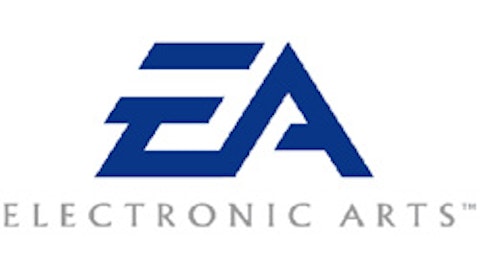When video games first came along, the only way to try a new one was to pay for it. Avid gamers quickly found cartridges stacking up, leading to a library of games they played only occasionally. Then came rental services like Blockbuster’s video game section, along with megastore GameStop Corp. (NYSE:GME). GameStop Corp. (NYSE:GME)’s entire business model is centered around selling used video games and DVDs, saving consumers money on those game libraries.
In a cloud-based, streaming video world, however, GameStop Corp. (NYSE:GME)’s concept seems glaringly outdated, despite its efforts to modernize by adding used mobile devices and gaming consoles to its store inventories. The company is on the decline, with revenue falling nearly 6.8% in its most recent quarter. As Microsoft Corporation (NASDAQ:MSFT) unveiled its Xbox One, confidence in the company dropped even further. Limitations on installing games on more than one Xbox may result in an additional fee if a disk has been installed on an Xbox before.
Switch to streaming
As movies and games move increasingly toward the cloud, Microsoft Corporation (NASDAQ:MSFT) is busy deflecting questions about whether or not customers will be able to use rental games in their devices. Meanwhile, consumers are increasingly embracing cloud storage for all games they own, with many game manufacturers now providing the ability to access games using only an access code on a purchased disc. This, of course, also presents a problem for used-game buyers who might enter an access code, only to find that game is installed on someone else’s console.
Microsoft Corporation (NASDAQ:MSFT) can’t afford to ignore its Xbox division. The company makes $1.4 billion each year from Xbox Live subscriptions, helping deflect losses from other areas. Overall, Microsoft Corporation (NASDAQ:MSFT) saw an 18.5% increase in third-quarter profit from a year ago, despite poor sales of Windows 8. Beefing up Xbox Live offerings by adding cloud gaming could be a definite plus for the company.
While Nintendo Wii and Sony Playstation both allow streaming of games from a cloud server (no disc required), the same can’t be said for playing those games directly from the company’s servers. Sony’s Playstation 4 offers gamers the chance to try out a game before buying it and play while it downloads, but playing options are limited until the purchase is complete. Nintendo has stated it has no plans to add cloud gaming to its devices, despite consumer demand.
Samsung sees promise
Samsung sees the demand for cloud gaming and is stepping up to meet it. The company recently bought Ubitus, a cloud-based gaming company out of Taiwan, with Ubitus CEO, Wesley Kuo, restating its conviction that cloud gaming will become as popular as streaming music and video.
With Samsung likely to incorporate cloud-based gaming in its TVs, that begs the question: will gaming consoles be necessary in a couple of years? Samsung is already emerging as a leader in innovation, and it’s a philosophy that pays off – the company reported $6.4 billion in net profit for its first quarter. It was a 42% increase that impressed Wall Street, with analysts noting that Samsung is trumping even Apple in earnings.




